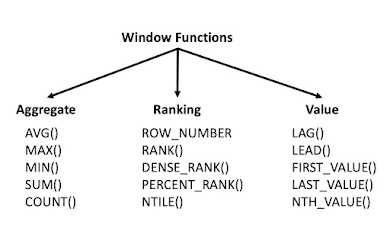3 Important Core Concepts in Big Data
Partitioning:
✍ Partitioning is logically dividing data into parts and then skipping few parts to get optimization. This is called partition pruning.
When to use Partitioning :
✍ when we have to filter the data in where clause and the filter column is having a SMALL number of distinct values (cardinality is low) then we can go with partitioning.
for example: partitioning on State column.
Bucketing:
✍ Bucketing is dividing the data into fixed number of parts based on a hash function and then skipping few parts to get optimization.
When to use Bucketing :
✍ when we have to filter the data in where clause and the filter column is having a LARGE number of distinct values (cardinality is high) then we can go with fixed number of buckets.
for example: bucketing on Customer_id column
Shuffling:
Shuffling:
✍ when talking about aggregations, we would have to send the local aggregate output to a final machine where final aggregation
will be done.
✍ However, we always want to minimize the shuffle as it is costly and require data transfer.


.jpg)
No comments:
Post a Comment